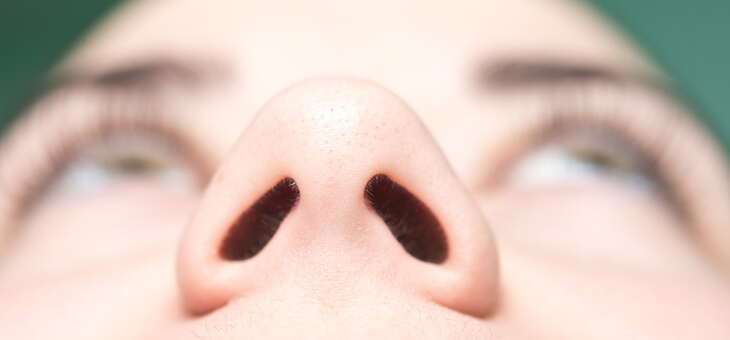Compared to dogs, cats and just about every other mammal, you’d think the human sense of smell doesn’t really compare.
Wild animals can pick up the scent of predator or prey from miles away, their olfactory systems finely tuned thanks to millions of years of evolutionary survival pressures. It’s not just their noses either.
Detecting scents perceived as dangerous sets off powerful reactions in their central nervous system, allowing animals to react well before they are consciously aware of the threat. On the other hand, our modern noses don’t seem to be as sharp.
Read: Are you losing your senses?
Sure, you can probably smell when your favourite meal is cooking, or when the baby needs changing, but do you think you could identify a potential threat through smell? What about smelling medical conditions or even poison?
That may sound like a superpower, but researchers in Sweden have been able to demonstrate in a new paper that like wild animals, our sense of smell sets off similarly powerful reactions in us. Even if we may not be aware of it.
The olfactory system, or your sense of smell, takes up about 5 per cent of the human brain and can distinguish between millions of different smells.
Read: Smelly start to a serious story
Many of these smells are associated with a threat to our health and survival, such as the scent of chemicals or rotten food. These odour signals can reach the brain within 100 to 300 milliseconds after being inhaled through the nose.
The Swedish study indicates that negative smells associated with unpleasantness or unease are processed faster than positive smells and trigger a physical avoidance response, meaning we still rely on our sense of smell to keep us safe.
“The human avoidance response to unpleasant smells associated with danger has long been seen as a conscious cognitive process, but our study shows for the first time that it’s unconscious and extremely rapid,” says Dr Behzad Iravani, lead author of the study.
Read: Why your pee may smell funny
The researchers have developed a method that has made it possible to measure signals from the human olfactory bulb, which processes smells and in turn can transmit signals to parts of the brain that control movement and avoidance behaviour.
Participants were asked to rate their experience of six different smells, some pleasant and some unpleasant. While answering the questions, the electrophysiological activity of the olfactory bulb was measured.
“It was clear that the bulb reacts specifically and rapidly to negative smells and sends a direct signal to the motor cortex within about 300 milliseconds,” says Dr Johan Lundström, another author of the study.
“The signal causes the person to unconsciously lean back and away from the source of the smell. The results suggest that our sense of smell is important to our ability to detect dangers in our vicinity, and much of this ability is more unconscious than our response to danger mediated by our senses of vision and hearing.”
Has your sense of smell ever alerted you to danger? What are your favourite scents? Let us know in the comments section below.
If you enjoy our content, don’t keep it to yourself. Share our free eNews with your friends and encourage them to sign up.

